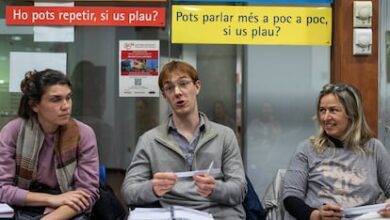
Catalonia has been gripped by a debate over its breast cancer screening program. After several opposition parties accused the regional government of stalling on widening the age range for participation, officials hastened to offer clarifications. Cabinet representatives assured the public that the current diagnostic system is fully effective and does not require urgent changes.
Criticism has come from several sides. Opposition lawmakers argue that the program does not cover enough women and that the starting age for screenings remains too high. There is particular discussion about lowering the minimum participation age from 50 to 45, as already done in some other regions of the country. However, government officials say that any adjustments will only be made after thorough evaluation and if the necessary resources are available.
Funding has also become a point of contention. Opponents claim that the lack of a new budget hampers the program’s development and prevents it from expanding. The authorities, for their part, emphasize that if necessary, funds will be found and that the current framework ensures the screening program operates steadily. They also note that if a decision is made to widen the age range, financial constraints will not be an obstacle.
Political disagreements and comparisons with other regions
The situation is further complicated by the fact that similar programs in other autonomous communities have already revised their age criteria. This has sparked new demands from the opposition, which insists on following the example set by neighboring regions. In response, government representatives reminded that any changes should be based on medical guidelines rather than political ambitions.
At the same time, other regions across the country have also faced challenges implementing similar programs, adding further tension to the debate. Nevertheless, Catalan authorities maintain that the local breast cancer prevention system remains one of the most effective and sought-after among the population.
The future of the program and public expectations
For now, the regional government does not plan any urgent changes to the current system. However, public pressure and the proactive stance of the opposition could lead to a review of the criteria in the near future. Officials stress that they are open to dialogue and will consider all proposals if they are supported by medical recommendations and the real needs of residents.
Thus, the question of expanding the breast cancer screening program in Catalonia remains open. Authorities promise not to ignore public demands, but are in no rush to make changes without solid justification. Discussions are expected to continue in the coming months, and there may be new developments on this important public health issue.












